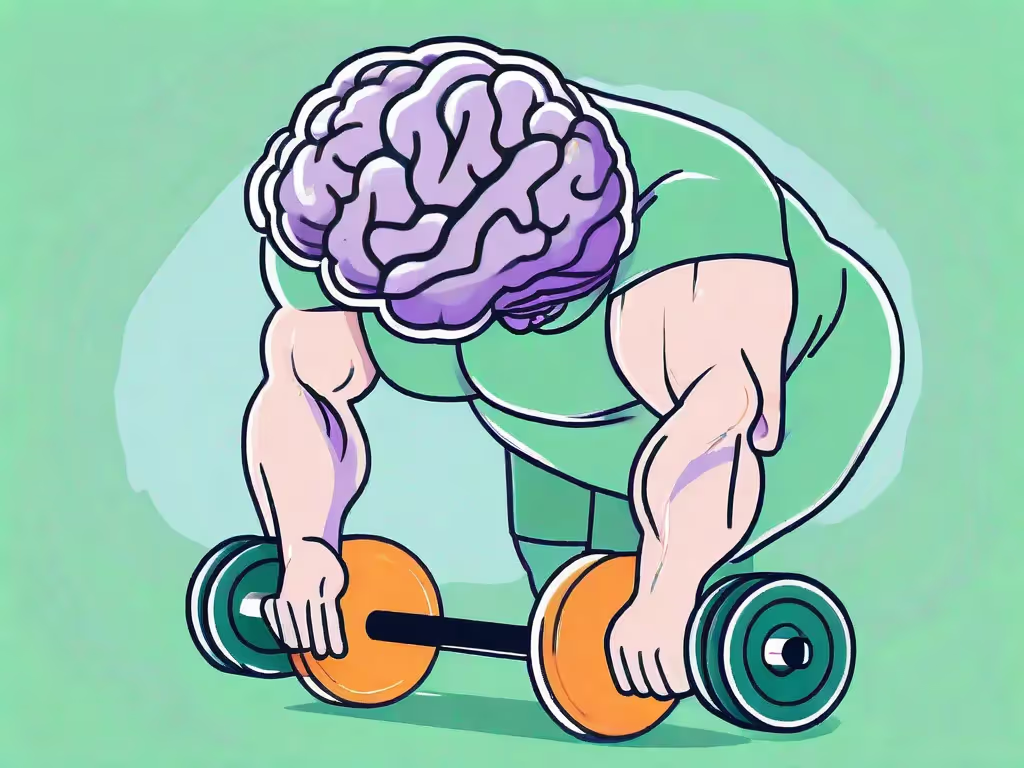Exercise has long been touted as an essential component of a healthy lifestyle. We all know about the physical benefits, like increased cardiovascular endurance and improved muscle tone. But what about the impact of exercise on our brains? Can working out actually make you smarter? That's a question that researchers have been exploring in recent years, and the results are fascinating.
Understanding the Connection Between Exercise and Intelligence
It's no secret that physical activity can have a positive impact on our mental health. Whether it's going for a run, hitting the gym, or taking a yoga class, exercise has been shown to reduce anxiety and depression, improve mood, and boost overall cognitive function. But how exactly does this connection between exercise and intelligence work?
The Science Behind Exercise and Brain Function
Recent studies have revealed that exercise has a profound impact on the structure and function of the brain. When we engage in physical activity, our brains release a flood of neurotransmitters, including dopamine, serotonin, and norepinephrine. These chemicals help to improve focus, enhance memory, and regulate mood.
Additionally, exercise increases blood flow to the brain, delivering oxygen and nutrients that are essential for optimal cognitive function. This boost in blood flow has been linked to improved attention span, faster processing speed, and better problem-solving abilities. In other words, exercise helps to create an environment that is conducive to learning and intellectual growth.
Physical Activity and Cognitive Abilities
But what about the specific cognitive abilities that can be influenced by exercise? Studies have shown that regular physical activity can enhance tasks that involve executive functions, such as planning, decision-making, and multitasking. It can also improve working memory, which is our ability to hold and manipulate information in our minds.
Furthermore, exercise has been found to have a positive impact on creativity. Engaging in physical activity can stimulate the release of endorphins, which are known to enhance our mood and promote a state of relaxation and mental clarity. This state of mind is often associated with increased creativity and the ability to think outside the box.
The Impact of Different Types of Exercise on Intelligence
While any form of physical activity can have a positive impact on intelligence, the type of exercise you choose may influence the specific cognitive benefits you experience. Let's take a closer look at two popular forms of exercise: cardiovascular exercise and strength training.
Cardiovascular Exercise and Brain Health
Research has consistently shown that aerobic exercise, which gets your heart rate up and increases your breathing, has a significant impact on brain health. Cardiovascular exercise has been linked to improved cognitive function, particularly in areas such as attention, memory, and processing speed.
One theory behind this connection is that cardiovascular exercise increases the production of a protein called brain-derived neurotrophic factor (BDNF). BDNF plays a crucial role in promoting the growth and survival of neurons, which are the building blocks of the brain. By increasing BDNF levels, exercise helps to create an environment that is conducive to learning and memory formation.
Strength Training and Cognitive Function
Strength training, on the other hand, has been found to have a positive impact on cognitive function that is separate from the benefits of cardiovascular exercise. While aerobic exercise primarily affects the frontal lobe of the brain, which is involved in executive functions, strength training appears to have a more widespread influence.
Recent studies have shown that strength training can enhance cognitive abilities such as attention, working memory, and problem-solving. It may also help to reduce the risk of cognitive decline and age-related diseases such as Alzheimer's. This may be because strength training stimulates the release of growth factors that promote the growth and repair of brain cells.
Exercise and Intelligence Across Different Age Groups
The impact of exercise on intelligence is not limited to a specific age group. In fact, research has shown that exercise can benefit cognitive function at all stages of life. Let's take a closer look at how exercise affects intelligence in children and adults.
Exercise and Intelligence in Children
Physical activity is particularly important for children, as their brains and bodies are still developing. Research has shown that regular exercise in childhood can improve cognitive abilities such as attention, memory, and academic performance.
One study found that children who engaged in regular physical activity had increased gray matter volume in areas of the brain associated with memory and learning. These structural changes were correlated with improved reading and math abilities. So, encouraging your children to be active can not only benefit their physical health but also enhance their intelligence.
The Role of Exercise in Adult Brain Health
Exercise continues to be important for brain health throughout adulthood. Studies have shown that regular physical activity can reduce the risk of cognitive decline and age-related diseases such as dementia.
One study followed a group of older adults for six years and found that those who engaged in regular physical activity had a 30% lower risk of developing Alzheimer's disease compared to those who were inactive. Physical activity can also improve executive functions, such as multitasking and decision-making, in adults of all ages.
The Long-Term Effects of Regular Exercise on Intelligence
The benefits of exercise on intelligence become even more apparent when we consider the long-term effects. Regular physical activity not only has immediate cognitive benefits but also helps to protect and enhance brain function over time.
Exercise and Memory Retention
One area where exercise has a particularly strong impact is memory retention. Research has shown that regular physical activity can improve both short-term and long-term memory. This includes the ability to remember new information, as well as recall previously learned information.
Exercise stimulates the release of chemicals in the brain that promote the growth of new neurons and strengthen the connections between existing neurons. This process, known as neuroplasticity, is essential for learning and memory formation.
Physical Activity and Problem-Solving Skills
In addition to enhancing memory, exercise can also improve problem-solving skills. Engaging in physical activity has been found to enhance cognitive flexibility, which is our ability to adapt our thinking and switch between different tasks or strategies.
A study published in the Journal of Aging and Physical Activity found that older adults who engaged in regular exercise performed better on tests of cognitive flexibility compared to those who were sedentary. This suggests that exercise can improve our ability to think creatively and find innovative solutions to problems.
Practical Tips for Incorporating Exercise into Your Routine
Now that we've explored the connection between exercise and intelligence, you might be wondering how to incorporate more physical activity into your daily routine. Here are some practical tips to get you started:
Finding the Right Exercise for Your Lifestyle
The key to sticking with an exercise routine is finding activities that you enjoy. Experiment with different forms of exercise, such as walking, swimming, dancing, or playing a sport, to find what resonates with you.
Consider your schedule and preferences when choosing an exercise routine. If you're someone who enjoys social interaction, join a group exercise class or find a workout buddy. If you prefer solitude, activities like hiking or biking may be more your style.
Balancing Exercise and Mental Stimulation for Optimal Results
While exercise is essential for brain health, it's important to balance physical activity with mental stimulation. Engaging in activities that challenge your mind, such as reading, puzzles, or learning a new skill, can complement the benefits of exercise.
Try to incorporate both physical activity and mental stimulation into your daily routine. Find opportunities to combine the two, like listening to an audiobook or educational podcast during your workout. This way, you're giving your brain a workout along with your body.
Ultimately, the connection between exercise and intelligence is a fascinating area of research that is still being explored. But one thing is clear – regular physical activity has numerous benefits for our brains, from improved cognitive function to enhanced memory retention. So, whether you're hitting the gym, going for a run, or taking a yoga class, know that you're not only improving your physical health but also giving your brain a boost.
And if you're looking for additional ways to enhance your mental well-being, consider checking out the Aura Health App. With a variety of mindfulness exercises and guided meditation sessions, it's a great tool to help you relax, reduce stress, and improve focus – all important factors in maintaining a sharp mind.
Aura is Your All In One App for Meditation, Mindfulness Wellbeing
Find peace every day with one app for your whole well-being. There is no one-size-fits-all solution to mental well-being. Aura is the first all-in-one wellness app that learns how to best help you. Discover an endless library of expert-created tracks for your well-being, all taught by the world’s best coaches, therapists, and storytellers. With Aura's personalized recommendations, you can find peace every morning, day and night.



.webp)






.avif)

%20(1).avif)


.avif)
.avif)
.webp)


.avif)


















































































































.avif)

















.svg)









